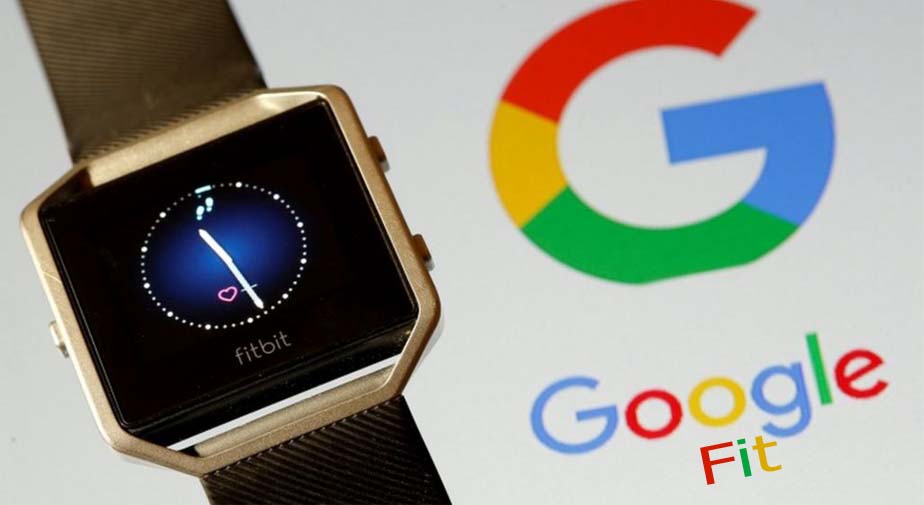Google Fitbit has finally been acquired. Google said Thursday that it’s officially closed its $2.1 billion purchase of fitness tracker pioneer Fitbit. The Internet giant first announced the deal in November 2019.
At the time, both companies promised to take care of Fitbit’s approach to user privacy and security. Including its data collection practices, and vowed never to use Fitbit health data for Google ads. Here is more information about the Google Fitbit Acquisition.

Google Fitbit
Google is reiterating that message now that the deal is completed. During a blog post, Google said its interest in Fitbit “has always been about devices, not data”. Which it remains committed to protecting Fitbit users’ privacy.
Beyond devices and a wealth of health data assets, the deal also gives Google ownership of Fitbit’s enterprise health business. Despite its consistent downplaying of the info and enterprise side of the deal.
The mixture of Google’s cloud, AI, and machine learning services with Fitbit’s enterprise platform. Gives Google a bigger foothold within the healthcare market.
Nonetheless, Google doubled down on its hardware focus in its blog post on Thursday. Noting that the mix of AI, software, and Fitbit hardware “will drive more competition in wearables. And make the following generation of devices better and more cost-effective.”
Google Fitbit Acquisition
Google’s acquisition of fitness tracker giant Fitbit has been completed. Both Fitbit and Google published posts on the deal, which is worth a reported $2.1 billion.
These articles, after the expected platitudes, largely specialize in one element: privacy. This can be perhaps the most important worry for Fitbit users, given Google could be a company fueled by data.
“Google will still protect Fitbit users’ privacy and has made a series of binding commitments with global regulators. Confirming that Fitbit users’ health and wellness data won’t be used for Google ads. And this data is going to be kept become independent from other Google ad data,” he writes.
These commitments are, in part, the results of an investigation by the EU Commission, one reason this acquisition has taken goodbye. It absolutely was originally announced in 2019. When the planet looked rather different in several ways.
Fitbit Google Fit
The European Commission detailed the concessions required for the deal to travel ahead during a statement published on 17 December.
In summary, Google cannot use Fitbit health data to tell your ad profile. Which is constructed up using the info Google harvests about you from other devices and web searches. Fitbit data needs to be kept in a very separate “data silo”.
This relates to compliance within the EEA countries, but “these commitments are implemented globally. So, all consumers can get pleasure from them” consistent with Rick Osterloh, Google Senior VP of Devices & Services.
The acquisition has been subject to a US Department of Justice investigation. And also, the complaints of multiple NGOs concerned about Google’s clear incentives. To use Fitbit data to further encroach on user privacy.
Google Buys Fitbit
However, Fitbit’s market share is also but you’d imagine, in step with Counterpoint Research. Fitbit accounted for just 2.4% of the worldwide smartwatch market.
By the revenue value of devices shipped, within the half of 2020. That compares to 51.4% for Apple, 9.4% for Garmin, 8.3% for Huawei, and 7.2% for Samsung.
Verdict
The merger can only be excellent news in terms of the standard of wearables related to the Google name, though. Its Wear OS platform has seemed stagnant for years.
While watches just like the Fitbit Sense offer genuinely new, if not necessarily desperately useful. Features like stress monitoring, which uses a sensor that may tell what quantity you’re sweating.
More Related Posts
- Learn A New Skill Today With Google – Learn Digital skills With Google And Get certified For Free
- Automotive News – Automotive News website | How to Access Automotive News | Automotive News Europe, Canada & China
- Facebook Lite Download – Facebook Lite Download Apk
- PayPal Logout – PayPal Logout Procedures | PayPal Logout of All Devices
- Duckduckgo Search Engine – Duckduckgo Application



